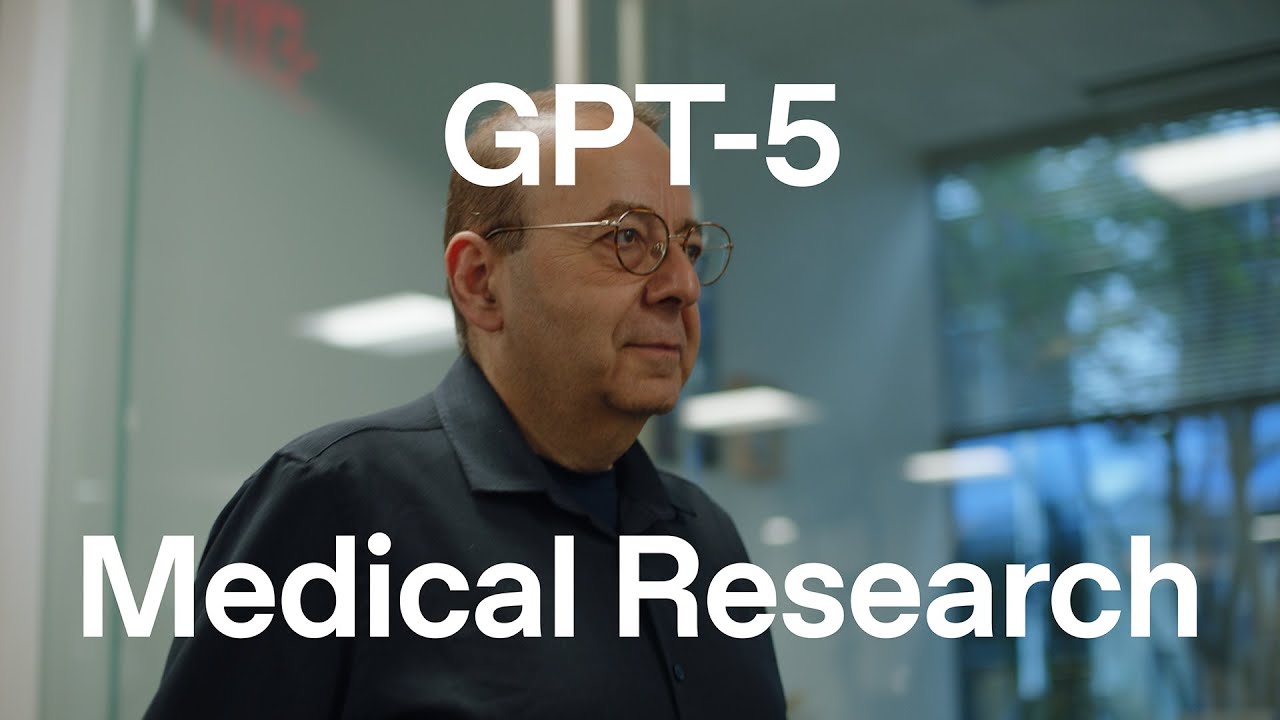
The intersection of artificial intelligence and healthcare is witnessing a transformative breakthrough with GPT-5. This advanced AI model is revolutionizing how medical research is conducted by accurately predicting experimental outcomes before they're even performed, potentially saving weeks or months of laboratory work and fundamentally changing scientific methodology in medicine.

From Collaborator to Mentor: GPT-5's Role in Medical Research
Immunologists and medical researchers have begun integrating GPT models into their workflow over the past year, but GPT-5 represents a quantum leap forward. Unlike previous iterations, GPT-5 demonstrates a depth of knowledge that often surpasses that of specialists in their own fields. This positions the AI not merely as a collaborative tool but as a mentor that can guide research directions and provide novel insights.
The model's capabilities extend beyond simple data analysis. When presented with complex experimental data—such as engineered immune cells designed to recognize cancer cells—GPT-5 can interpret results that might baffle human researchers, suggest novel hypotheses, and recommend targeted follow-up experiments that have high probabilities of success.

Accelerating Cancer Research Through AI-Guided Experimentation
One of the most promising applications of GPT for medicine is in cancer research. When researchers uploaded data from experiments involving immune cells engineered to target cancer cells, GPT-5 not only interpreted the existing data but provided remarkable new insights that researchers later confirmed through experimentation.
This capability addresses a fundamental challenge in scientific research: the virtually unlimited number of potential experimental approaches. By narrowing thousands of possible experiments down to a handful of high-value targets, GPT-5 dramatically accelerates the research timeline. Instead of pursuing a thousand different approaches, researchers can focus on ten AI-recommended experiments with a higher probability of yielding meaningful results.
Enhanced Brainstorming and Idea Refinement in Healthcare Research
Beyond data interpretation, GPT-5 excels as a brainstorming partner for medical researchers. The model can engage in sophisticated back-and-forth discussions, critiquing researchers' ideas while generating novel approaches. This dialectical process mirrors the collaborative environment of top research institutions but can happen at any time without scheduling constraints.

Patient Empowerment Through GPT in Healthcare
The benefits of GPT for healthcare extend beyond the laboratory. GPT-5 has the potential to empower patients by helping them better understand their conditions and treatment options. This knowledge can give patients more confidence when discussing their care with medical professionals, potentially leading to more collaborative doctor-patient relationships and better health outcomes.
Key Benefits of GPT-5 in Medical Research
- Predicts experimental outcomes before they're conducted, saving weeks or months of laboratory work
- Interprets complex data patterns that might be missed by human researchers
- Suggests focused follow-up experiments with higher probabilities of success
- Serves as an always-available brainstorming partner for refining research approaches
- Helps narrow thousands of potential research avenues down to the most promising few
- Accelerates the pace of discovery in critical areas like cancer immunotherapy
- Provides patients with accessible information to better understand their conditions
The Future of GPT in Medicine: Beyond Current Applications
The emotional response from experienced researchers using GPT-5 suggests we're at an inflection point in medical research. The confidence that researchers express about achieving previously challenging goals indicates that GPT for medicine may accelerate breakthroughs in treating complex conditions like cancer, autoimmune disorders, and other diseases that have traditionally been difficult to address.
As GPT models continue to evolve and incorporate more specialized medical knowledge from sources like PubMed, their utility in healthcare settings will likely expand. Future iterations may offer even more precise guidance for personalized medicine, drug development, and clinical decision support.
Conclusion: A New Era for Medicine and Healthcare Research
GPT-5 represents a paradigm shift in how medical research is conducted. By predicting experimental outcomes, interpreting complex data, and guiding research directions, this AI technology is compressing research timelines and opening new possibilities for treatment development. The partnership between human researchers and advanced AI models promises to accelerate scientific progress in ways that were previously unimaginable, potentially bringing life-saving treatments to patients faster than ever before.
Let's Watch!
GPT-5 Revolutionizes Medical Research: How AI Predicts Experimental Outcomes
Ready to enhance your neural network?
Access our quantum knowledge cores and upgrade your programming abilities.
Initialize Training Sequence